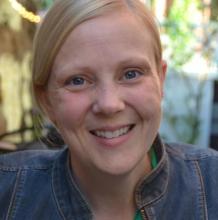Fall is such a conflicted season for me.
 Growing up in Iowa and living in agricultural communities in Michigan and New York, fall signifies the harvest—a time when hard work comes to fruition and we reap what we sow. In our churches and our communities, we often celebrate this time with fall or harvest festivals. We thank God for the food that not only nourishes our bodies, but also provides our families with the economic means to fulfill our other basic needs as well. It is a time of thanksgiving and celebration.
Growing up in Iowa and living in agricultural communities in Michigan and New York, fall signifies the harvest—a time when hard work comes to fruition and we reap what we sow. In our churches and our communities, we often celebrate this time with fall or harvest festivals. We thank God for the food that not only nourishes our bodies, but also provides our families with the economic means to fulfill our other basic needs as well. It is a time of thanksgiving and celebration.
Fall is also when many important statistical reports are published highlighting global trends regarding poverty, mortality rates, and other life-threatening factors. In September the World Bank issued a press release stating that the number of people worldwide living in extreme poverty (i.e. living on less than $1.90 per day) had decreased by 68 million people. This should be good news, right? Perhaps, but it’s hard to celebrate when the same statistics show 736 million people continue to live in extreme poverty. [For those interested, the full report will be published on the World Bank website on October 17.] The press release goes on to say that over half of people worldwide living in extreme poverty come from Sub-Saharan Africa, and that if trends continue as they currently are, 9 out of 10 people in Sub-Saharan Africa will live in extreme poverty by 2030.
UNICEF released their Levels and Trends in Child Mortality Report 2018 in September as well showing that an estimated 6.3 million children ages 15 and under died in 2017 worldwide of mostly preventable causes, at a rate of one child every five seconds. Half of these deaths occurred in Sub-Saharan Africa, where 1 in 13 children died before their fifth birthday. Many of these deaths were caused by lack of resources such as food, clean water, electricity, vaccines, and basic medical care.
 Today is World Communion Day. Many of us will meet for worship with other Christians and will gather around the table with a special focus on the global church. As we accept the bread and the cup, let us think of our brothers and sisters worldwide:
Today is World Communion Day. Many of us will meet for worship with other Christians and will gather around the table with a special focus on the global church. As we accept the bread and the cup, let us think of our brothers and sisters worldwide:
- Who do not have bread and who do not have juice or wine…or any food to feed their families today.
- Who do not have clean water to drink.
- Who do not have access to basic healthcare and vaccines.
- Who are burying their children who have died because of a lack of these basic needs.
- Who are leaving their homes in hopes of finding a new place and a new community that will meet their needs.
- Who are being turned away on their migration journeys and denied access to resources to sustain them.
Then let us leave our houses of worship, having been fed at the table, with a renewed commitment to engage in acts of true worship, as described in Isaiah 58, including the care of refugees.
Today is Week 3 of a 5-week series of Sunday reflections on refugees and the Christian case for caring for those seeking refuge. Week 1 we reflected on war. Week two on persecution.

